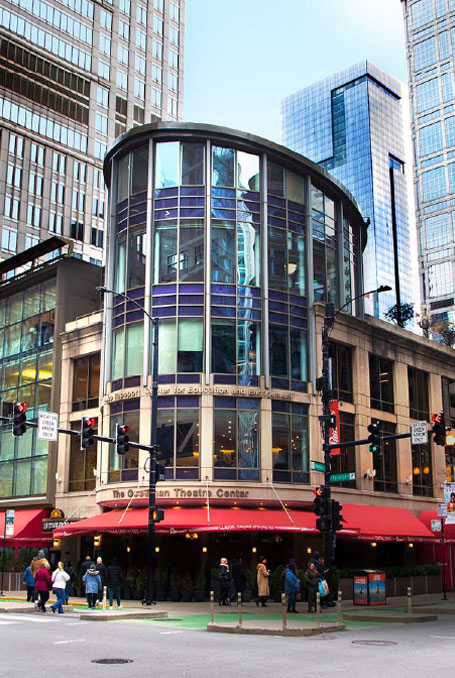Chicago Nursing Home Physical Abuse Attorneys
Compassionate Physical Abuse Attorneys Serving Clients Throughout Chicago
When people reach an advanced age or suffer from disabilities or other serious health issues, they may require assistance with various daily needs. Nursing homes are meant to provide this assistance while ensuring that elderly people can live in a safe environment. However, instances of physical abuse in nursing homes can occur, leading to severe injuries and irreparable harm to residents.
It is essential for families to be aware of the types of injuries that can occur as a result of physical abuse in nursing homes. By recognizing the signs that may indicate that a person has suffered abuse, family members can take immediate action to address these issues. At Schwartz Jambois, we provide legal help for families that have been affected by nursing home abuse and neglect, and we can help you take steps to address injuries that have occurred because of physical abuse and ensure that a nursing home is held responsible for any harm suffered by your loved one.
Types of Injuries Resulting from Physical Abuse
Physical abuse in nursing homes can manifest in various forms, resulting in different types of injuries. These injuries may include:
- Bruises: Unexplained bruising or marks on different areas of the body could indicate physical abuse. This may result from hitting, slapping, or forcefully restraining residents against their will.
- Cuts and lacerations: Sharp objects or rough handling can cause cuts, scrapes, and other wounds on a resident's skin.
- Bone fractures: Elderly people often have fragile bones that are susceptible to breaking even with minimal force. Physical abuse such as pushing or shoving could lead to broken bones, which could limit a person's mobility and cause them to suffer other health issues.
- Head injuries: Violent actions like striking a person's head against a hard surface or pushing them hard enough to cause a fall may result in traumatic brain injury (TBI), swelling, concussions, or other head trauma.
- Sprains and dislocations: A staff member using excessive force while moving an elderly person can cause sprains or dislocated joints.
Recognizing Signs of Physical Abuse
Families must remain vigilant when visiting loved ones residing in nursing homes, and they can look for signs that a person has experienced physical abuse. The following warning signs may indicate that a resident has been subjected to physical abuse:
- Unexplained injuries: Any unaccounted-for injuries, such as bruises, cuts, or fractures, should raise suspicions of physical abuse.
- Fear or anxiety: If a resident appears afraid or displays increased agitation around certain staff members, this could be an indication of abusive behavior.
- Sudden changes in behavior: Physical abuse can cause emotional distress and drastic changes in behavior, such as withdrawal from loved ones, depression, or loss of interest in previously enjoyed activities.
- Poor hygiene and personal care: Neglectful physical caregivers may not attend to residents' basic needs properly. Unkempt appearance, dirty clothing or bedding, and malnutrition may signify potential abuse.
- Injuries inconsistent with the explanation: If the explanations given for an elderly person's injuries conflict with their severity or location on the body, this may be a sign that physical abuse has occurred.
Taking Action to Address Nursing Home Abuse
If you suspect that your loved one is suffering from physical abuse in a nursing home facility, it is crucial to act quickly to address this issue, protect them against further harm, and hold the responsible parties accountable. Here are some steps you can take:
- Contact law enforcement: If there is an immediate threat to your loved one's safety or well-being, contact the local authorities right away. You may also notify your local adult protective services agency or the appropriate state agency charged with investigating elder abuse claims.
- Gather evidence: To support your claim against the responsible parties involved in the physical abuse incident(s), document any visible injuries using photographs. You may also be able to obtain witness statements from other residents or anyone else who has seen or experienced incidents of abuse.
- Remove your loved one from the abusive environment: If you suspect any danger that may continue to affect your loved one's safety or well-being, you may consider finding another facility that will provide proper care. Temporary arrangements, such as a stay at a relative's home or a facility that provides short-term care, may be made until the proper measures can be put in place to ensure that a nursing home will provide a safe environment.
- Consult with an attorney: A lawyer with experience in cases involving nursing home abuse can provide invaluable guidance on how to proceed. With the help of an attorney, you can advocate for your loved one's rights and seek justice against the perpetrators of physical abuse.
Contact Our Chicago Nursing Home Physical Abuse Attorneys
At Schwartz Jambois, we provide dedicated legal representation for families who have been affected by nursing home abuse. We can help you demonstrate that your loved one has suffered harm because of the negligence of a nursing home or its personnel, and we will work to ensure that you will be fully compensated for the ways your loved one and your family have been affected. Contact us today at 312-782-2525 to set up a free consultation.




 312-782-2525
312-782-2525



